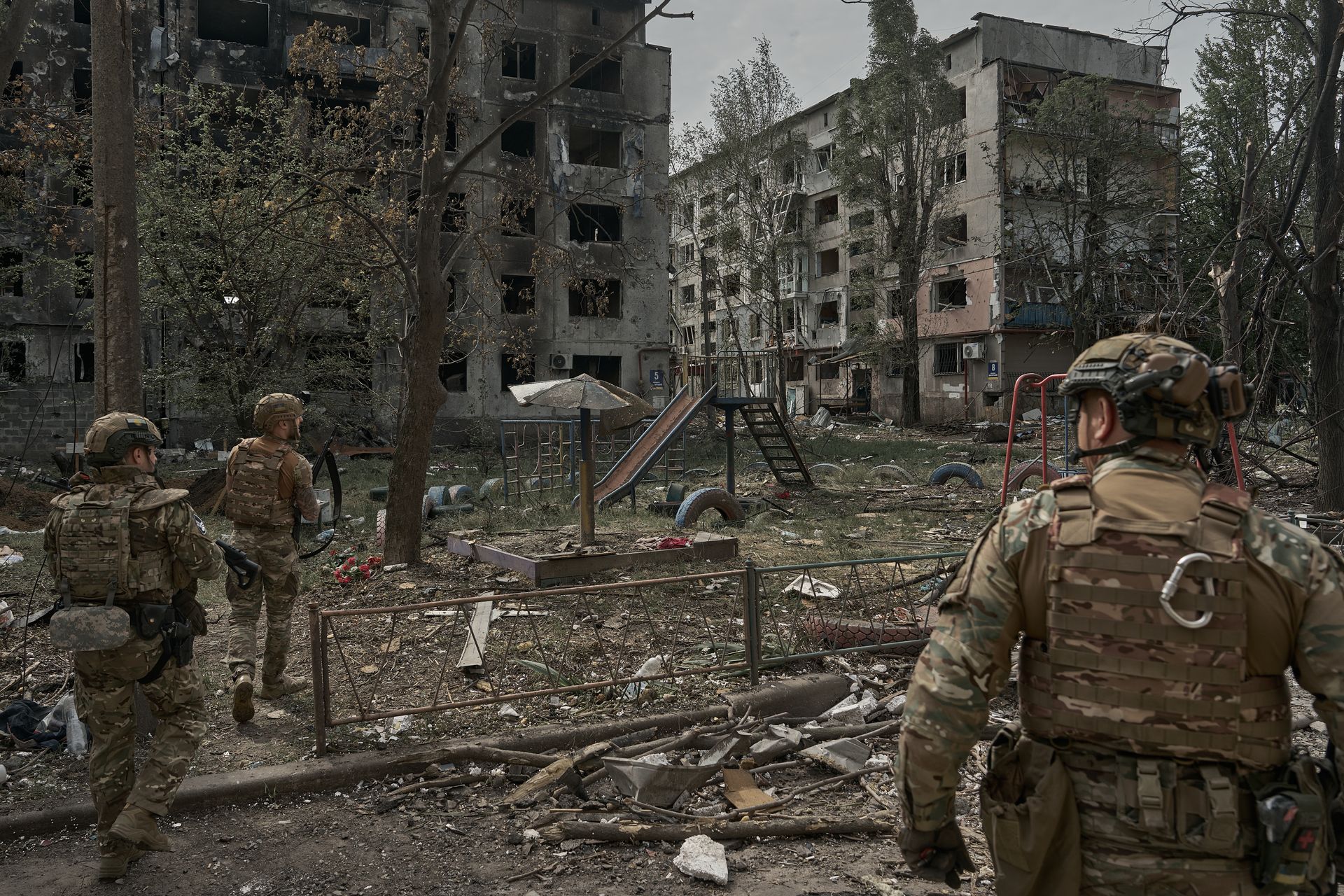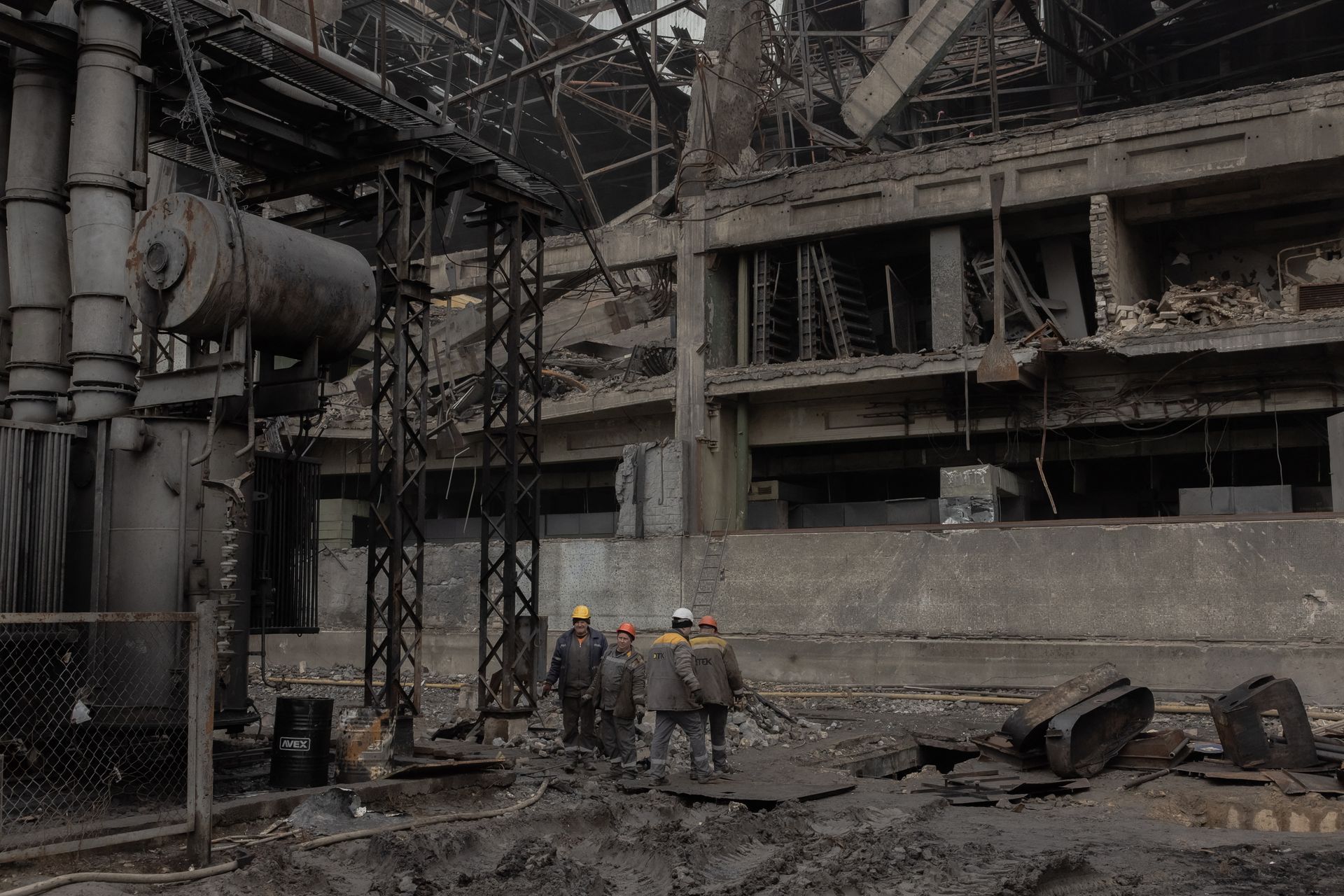Brazilian foreign fighters in Ukraine sound alarm about infiltration by South American gangs

At first glance, a YouTube interview with Philippe Marques Pinto looks like one of dozens of others in Ukraine’s long-running campaign to recruit South American soldiers to bolster its ranks in the fight against Russia.
“I worked as a private security guard in Brazil, and when I arrived here, I got training, and it was just a question of adaptation,” Pinto says in an April 25, 2025, video for the Foreign Recruitment Center, a channel run by Ukraine’s Defense Ministry.
But according to police in Pinto’s hometown of Rio de Janeiro, Pinto wasn’t telling the full truth — he was indeed a "private security guard" of sorts, but as a local leader of Comando Vermelho (CV), or the Red Command, one of Brazil’s and South America’s most powerful and notorious organized crime and drug trafficking groups.
The Kyiv Independent has spoken with Brazilian soldiers serving in Ukraine, sources in Ukraine’s International Legion, and law enforcement in both Brazil and Ukraine to understand Pinto’s case.
Their accounts, along with a statement from Rio de Janeiro’s Civil Police and video evidence, show that an alleged gang-linked fighter who police say has a criminal record in Brazil managed to enter and remain in Ukraine’s ranks despite behavior that raised suspicions among his commanders and comrades.
The case raises questions about how foreign volunteers are vetted and how discipline is enforced, especially when soldiers with problematic histories switch units after running into trouble.
According to a statement sent to the Kyiv Independent, Rio de Janeiro’s Civil Police allege that Pinto, who they say has a criminal record for drug trafficking, went to Ukraine to receive training he intended to use in fighting against Brazilian police, and that he is now under investigation for his ties to a CV crime boss in Salgueiro, a cluster of favelas in greater Rio that is a Comando Vermelho stronghold and a frequent site of police raids.
Police added that he will soon face additional charges.
"The criminal allegedly went to Ukraine to learn techniques used in the conflict. At least three entries into Europe have been identified, in addition to images of the trafficker in Ukraine," the statement reads.
The concern Rio police have over military tech — and the knowledge required to use it to deadly effect — spreading to gangs has a recent precedent. In late October 2025, Rio authorities launched what human rights groups and media have described as the deadliest police raid in the city’s history in favela complexes controlled by Comando Vermelho, leaving more than 100 people dead.
During the clashes, gang members reportedly used drones to drop explosives on police positions.
And Pinto seems to have confirmed the organized link in another video in which he declared his loyalty to Comando Vermelho. The clip was circulating in WhatsApp groups of Brazilian soldiers in Ukraine, and emails shown to the Kyiv Independent indicate that it was his fellow Brazilian soldiers who tipped off Rio police, leading to the investigation.
In the video, which was widely published by Brazilian media and is now part of the Rio police investigation, Pinto appears to be in army fatigues somewhere in Ukraine and holding an assault rifle, as he pays tribute to the CV.
"Puro Comando Vermelho, no mistura… Pure Comando Vermelho, no mix," he says. Then he holds the rifle up and says the video is in homage to an alleged crime figure he calls "the eternal boss" of a community in Rio, before adding: "Whatever part of the world we are in, we are his eternal soldiers."
The Kyiv Independent could not verify the video, and Pinto did not respond to a request for comment.

It’s not clear when or how the video with Pinto’s declaration of loyalty became public, but his presence in Ukraine as a fighter is confirmed, though the details — in terms of which units he served with and when — remain unclear.
In the Defense Ministry video, he claims he fought near Kherson, Kramatorsk and Kharkiv. Sources within the International Legion confirmed to the Kyiv Independent that he briefly served in the Second International Battalion before commanders removed him after growing suspicious.
Brazilian soldiers who say they served with Pinto, speaking on condition of anonymity because of the potential danger posed by Comando Vermelho to their families in Brazil, told the Kyiv Independent he later joined a brigade with the Territorial Defense Forces, a reserve component of Ukraine’s Armed Forces made up largely of volunteers for local defense.
The Kyiv Independent has requested his service record from both the Armed Forces and the Territorial Defense Forces and will update this article if a response is received. It is also working to determine Pinto’s current whereabouts and whether he is still in Ukraine.
"This hurts the reputation of an entire nationality."
One of the Brazilian soldiers, who goes by the call sign "Pokhan," told the Kyiv Independent he met Pinto at a military base in the summer of 2023. Pinto, he says, was less than discreet about his connections to Comando Vermelho, as he once saw him conducting a video call with a group of men in Brazil holding assault rifles.
"Yes, those people were drug traffickers from Rio de Janeiro. On the video call, he was telling stories about combat situations here. This was in 2023 — I don’t remember the month — but it seemed he had just arrived in Ukraine," he said.
There’s no official data on the number of South Americans fighting for Ukraine, but thousands are believed to have joined since 2022, with Colombians being the largest group and Brazilians a distant second.
Concerns over possible infiltration by drug cartels are not new: Intelligence Online, a French publication, reported July 29, 2025, that Ukraine’s domestic counterintelligence was investigating Spanish-speaking volunteers linked to Latin American drug cartels who allegedly joined the International Legion to learn first person view (FPV) drone tactics.
Many soldiers from Latin America, like Pokhan, have previous experience in the military or police and are adamantly opposed to drug traffickers, often having gained combat experience fighting against them.

Pokhan said that Pinto was not accepted by his fellow Brazilians. He added that he and his comrades did not find the investigation unexpected. "In a way, I’m offended. This hurts the reputation of an entire nationality. But I’m not surprised that situations like this come up," he said.
Everson Neves is a 25-year-old Brazilian from Santa Catarina who has served in the Ukrainian Armed Forces since 2023, first as a combat medic and currently as a drone operator in a Territorial Defense Brigade.
He didn’t serve with Pinto, but has followed the case closely. In his view, part of the problem lies with the Brazilian government — Pinto was not facing charges or listed in any database that Ukraine could access for suspected gang members.
He believes that should be more robust cooperation between Ukrainian authorities and their peers in Latin America.
"And this also brings us to the criticism of Brazil for not recognizing these criminal factions as terrorist groups, which made it easier for him to enter Ukraine — since he had no active arrest warrant in Brazil, he could legally enter. This is a big mistake and I think this is what needs to be changed," he said.
Neves says he has seen that Ukrainian instructors tend to be reluctant to quickly teach South Americans how to operate drones, and that he had to gain his commanders’ trust before moving from medic to drone operator.
Personally, he’s glad Brazilian soldiers worked together to file the police complaint about Pinto.
"Everyone who is here, fighting for the cause, for the people, is afraid that this may affect us, those who are working, doing the right job. We don’t want someone from this criminal world among us here. So this was an important initiative coming from the Brazilians, to, as we say in Brazil, pull the problem out at the root," he said.

Note from the author:
Hello there! Olá! This is Jared, the author of this piece. I hope you found this article informative. I did my best to write it in a way that was fair and factual, making it clear that the issue wasn't about any particular nationality – Brazil will always hold a special place in my heart, and I hope to return soon. But for now, I, like my colleagues, will be staying in Kyiv, despite Russia's continuous attacks on the capital and its energy infrastructure.
Please consider supporting our reporting. I hope to deliver more stories on the contributions of Brazilians in Ukraine going forward.













